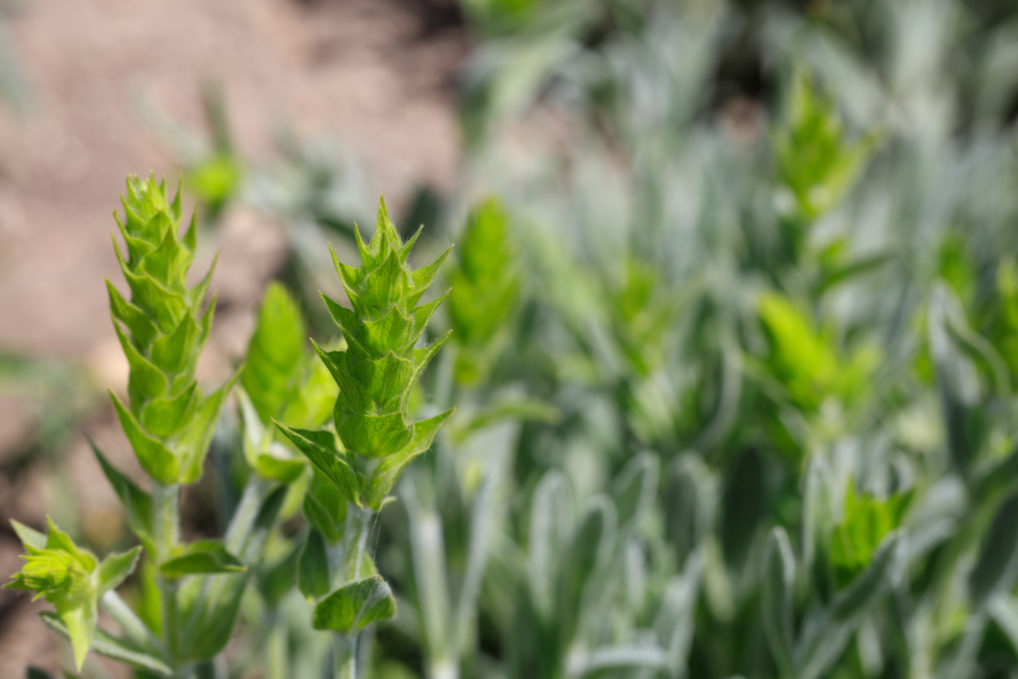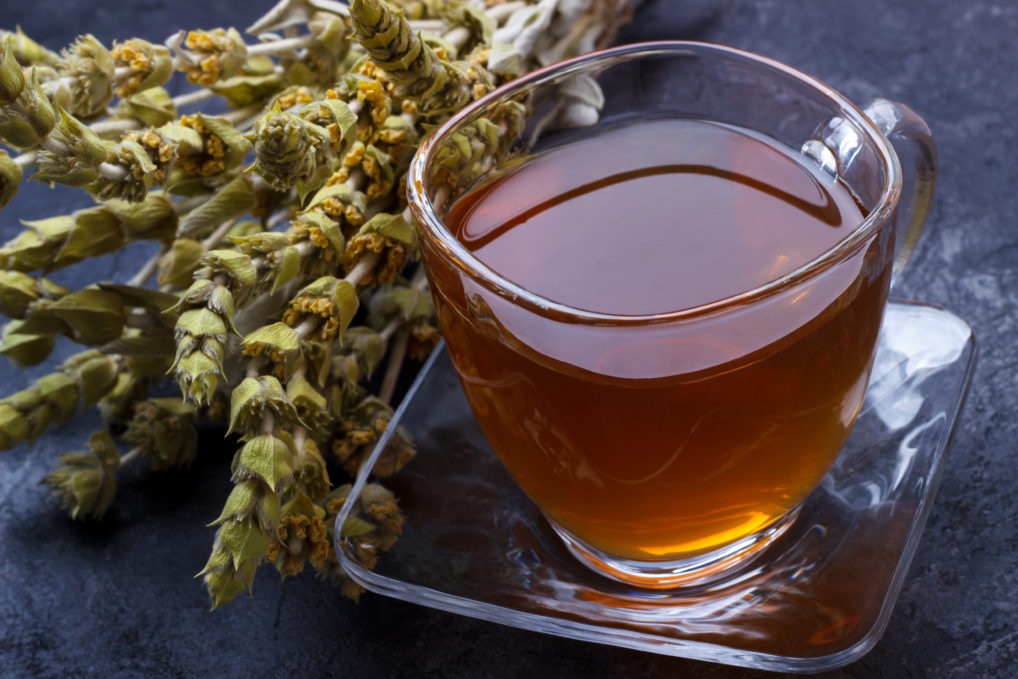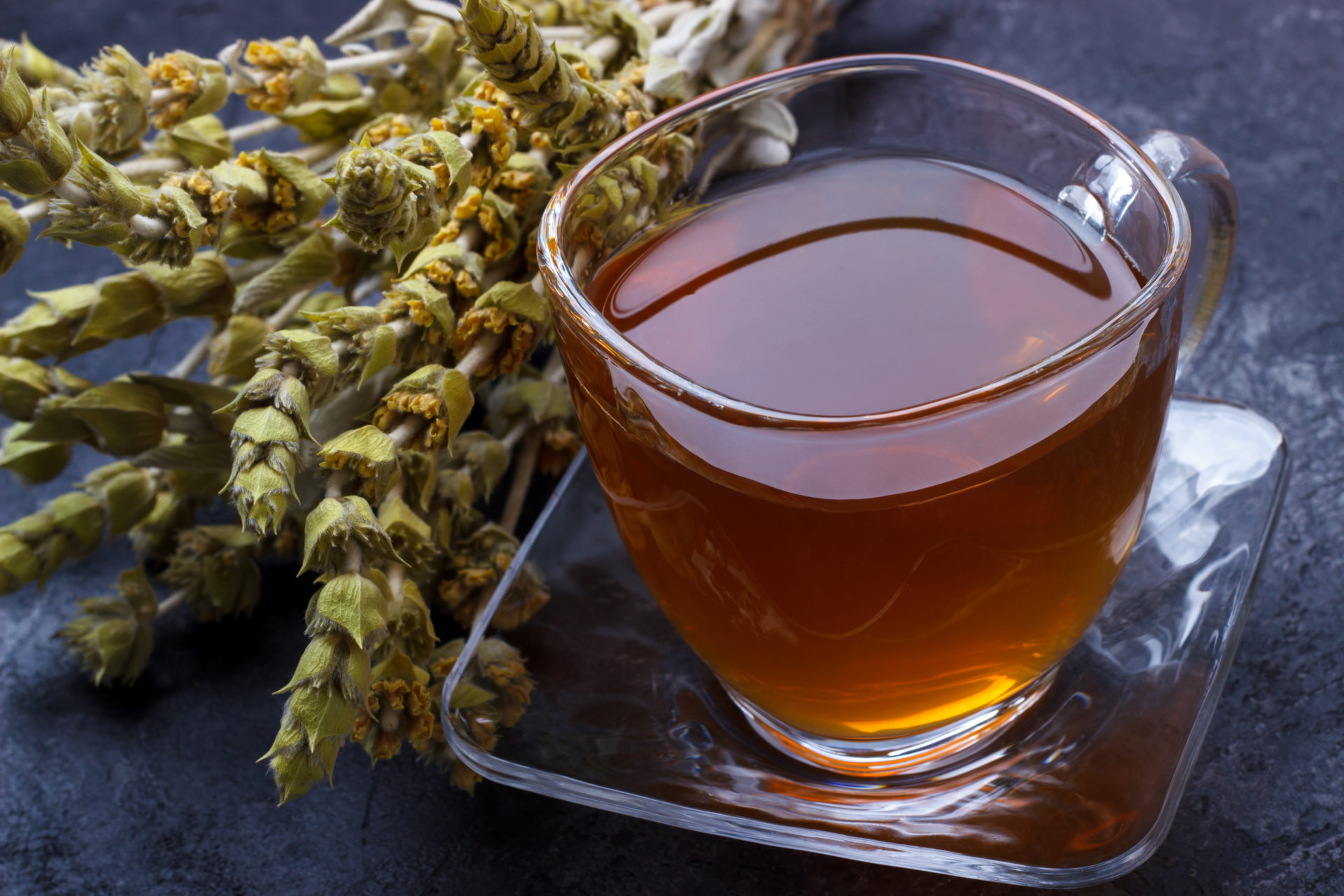Mountain tea is perhaps one of the most well-known, widespread and famous herbs of the greek countryside along with sage, chamomile, lemon verbena, thyme and oregano. It is the genus Sideritis, while it has other names depending on its species.
Mountain tea has been consumed for centuries. Hippocrates used it as a herbal tonic because of its high iron content. Dioscorides calls it “sideritis” (ironwort) because he believed it helped heal wounds from iron objects, especially after the battles. Others believe that this name derives from the similarity of the plant’s sepals to the spear’s tip or simply because of its iron content.
Mountain tea is a herbaceous plant with thin, round branches and fluffy leaves. Its flowers are pink or purple or yellow. It usually grows in mountainous and stony areas over 900 meters. Many species of this plant grow in Mediterranean countries and some in Asia. There are over 100 different species in the wider Mediterranean region.

In Greece, 17 different species of this plant have been recorded. Mountain tea can be found as shepherd’s tea (tsai tou vlahou or betonetta in Mount Athos), Mount Olympus tea, Parnassus tea, malotira or kalokimitha (sleep well) in Crete, Malevos tea, Delphi tea. “Kalokimitha” in Crete was named by the shepherds, who, as the mountain tea was fluffy, slept on it and had a restful sleep.
The planting can be done in two seasons (October-November and February-March). The tea is harvested in July when the plant has bloomed and dried before use.
Mountain tea contains many antioxidants, valuable to the body, while it also contains flavonoids and astringents (essential oils), acids, sterols.
Its benefits:
- It is particularly effective against colds, nasal congestion and persistent cough
- It helps stomachache relieve indigestion
- It’s a diuretic
- It is astringent and is used in the treatment of diarrhea
- It has antioxidant and anti-inflammatory properties to the same extent as green tea
- It helps with anemia due to its high iron content
- It has anxiolytic effect
- It strengthens the immune system
- It does not contain caffeine, so it can be consumed in large quantities or even before bedtime.
- Thanks to flavonoids it helps to fight heart disease.

In our blog you will find various recipes on how to use mountain tea (mountain tea with honey and lemon, sideritis with spices).




